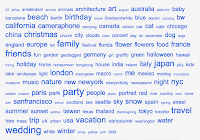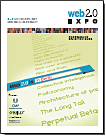FT: The search wars are over, Google has won
In it's last Tech Blog (subscription required) Financial Times declares the search wars over, at least for now. Google has won. "Despite everything Microsoft and Yahoo! have been able to throw at it, Google's share of the search business has just kept going up, to the point where it finally seems time to declare this contest done".
The newspaper points to the latest figures from ComScore as proof. Already dominant in Europe, Google's share of US searches reached 58.5 per cent in October. That is up from only around 35 per cent in November 2004 - the month when Microsoft formally took the gloves off with the launch of its own search engine. In almost every month since, Google has bitten off a little more of the business.
On our own web site the Google share is even more impressive. 37 per cent of our traffic comes from search engines, and Google is the point of entry for nine out of ten visitors coming into our sites through search.



